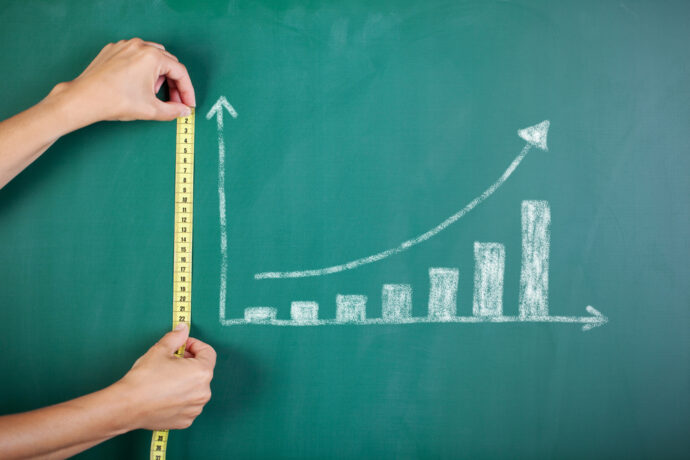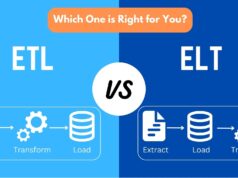In a world characterized by rapid technological advancements, our daily lives have become irrevocably intertwined with the digital realm. From how we work, learn, communicate, and entertain ourselves, digital technologies have reshaped the way we exist. Yet, amid this digital whirlwind, a particular area of profound impact often goes unnoticed: personal growth. In the digital age, the pursuit of self-improvement and personal development has taken on a new dimension.
Harnessing the Power of Apps for Personal Growth
A key part of self-development in the digital age is learning how to harness the power of apps for personal growth. Apps such as the Headway app offer a structured, convenient, and personalized way to address various areas of self-improvement, from physical wellness to mindfulness, education, productivity, and progress tracking.
Choosing the right app can seem like a daunting task given the sheer number of options available. However, by focusing on your personal growth goals and carefully evaluating each app’s features, credibility, and user reviews, you can find the ones that are most likely to support your growth. Remember that while apps are powerful tools, they are not magic bullets. Consistent use, coupled with real-world application of what you learn, is crucial to realizing the benefits they offer.
Notably, the most effective apps for personal growth are those that seamlessly integrate with your lifestyle, making the process of self-improvement feel less like a chore and more like a natural extension of your daily routine. Moreover, these apps often employ gamification strategies, offering rewards and feedback that further motivate you to stick with your self-improvement goals.
Mindfulness and Meditation: Cultivating Inner Balance and Awareness

Mindfulness and meditation apps have risen in popularity as people increasingly seek inner peace amidst the incessant digital noise. These apps serve as digital sanctuaries, helping us cultivate awareness, tranquility, and emotional balance. They offer guided meditations, breathing exercises, and mindfulness practices tailored to different needs and experience levels, making meditation accessible to all.
Yet, as beneficial as these apps can be, they are most effective when used as part of a holistic approach to mindfulness. This might involve coupling app-based practices with non-digital mindfulness habits, such as nature walks or journaling, to cultivate a robust and balanced mindfulness routine.
Fitness and Health: Achieving Physical Wellness and Self-Care
Our physical health is a cornerstone of personal growth, and the digital age presents innovative ways to achieve and maintain it. Fitness and health apps, such as MyFitnessPal, Nike Training Club, and Strava, provide a wealth of resources, including workout routines, nutrition tracking, and social networking for fitness enthusiasts.
They offer personalized workout plans tailored to individual goals, whether it’s losing weight, building muscle, or improving flexibility. Moreover, they allow for fitness tracking, providing real-time feedback that can motivate users and help them fine-tune their routines for optimal results.
However, it’s important to remember that fitness and health apps should complement, not replace, professional medical advice. While they can help track progress and provide motivation, always consult with healthcare professionals when starting new fitness regimens or making significant changes to your diet.
Learning and Education: Expanding Knowledge and Skill Sets

In the realm of knowledge acquisition and skill development, the digital age offers unprecedented opportunities. Learning and education apps such as Coursera, Duolingo, and Khan Academy provide access to thousands of courses, tutorials, and lessons across a myriad of subjects.
These apps democratize education, providing individuals with opportunities to learn from world-class institutions and educators without geographical or financial barriers. They offer a flexible learning experience, allowing users to learn at their own pace, on their own schedule, and tailored to their unique learning style.
The real value of these apps lies not merely in the wealth of knowledge they provide, but in the way, they encourage lifelong learning. By fostering an ethos of curiosity and growth, they can help cultivate a mindset that values continuous self-improvement, a crucial asset in our rapidly changing world.
Productivity and Goal-Setting: Maximizing Efficiency and Achievement
The digital age brings with it a new set of challenges to productivity. The same technologies that connect us and provide us with endless information can also distract us and make it harder to focus.
They offer features such as task management, time tracking, and goal setting to help users stay organized, manage their time effectively, and keep their eyes on their goals. They provide visual aids like charts and graphs that make it easier to comprehend and manage our tasks, deadlines, and progress toward our goals.
Remember, though, that productivity is not about cramming as many tasks as possible into each day. It’s about prioritizing and focusing on what truly matters. Productivity apps should aid this process, not contribute to a culture of overwork and burnout.
Tracking and Analytics: Monitoring Progress and Continuous Improvement

The process of self-development is dynamic, requiring regular assessment and adjustment. Tracking and analytics apps, such as HabitBull and Google Analytics, provide insights into our habits, behaviors, and progress, enabling us to make informed decisions and adjustments as we pursue our self-development goals.
These apps leverage the power of data to illuminate patterns and trends that might otherwise go unnoticed. They offer a visual representation of our progress, lending tangible proof of our growth and providing motivation to stay on track.
However, it’s important to approach these insights with a balanced mindset. While tracking can illuminate our progress, becoming overly fixated on data can detract from the qualitative aspects of personal growth. Use these apps as guides, not gospel, and remember that personal growth is as much about the journey as it is about the destination.
Conclusion
The digital age has undoubtedly revolutionized the landscape of self-development, offering a rich array of tools to aid our personal growth journeys. By harnessing the power of apps mindfully, we can transform our smartphones from sources of distraction into catalysts of growth, equipping us to thrive in this dynamic, digital world.















